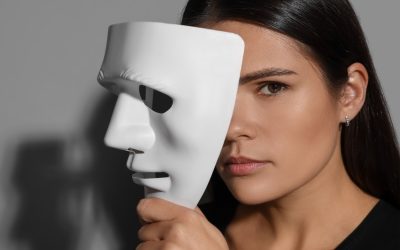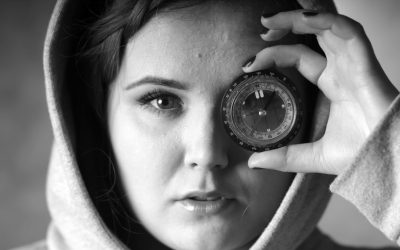Think of your mind as a family household. Inside, there are different members – your Parts. Each one has its own voice, temperament, and role. Some are playful, some are cautious, some carry wounds from the past.

What Does a Psychologically Empowered Woman Look Like?
When a woman is psychologically empowered, it shows!
Not always through loud declarations or grand gestures, but through her presence, her choices, and how she moves through life. Psychological empowerment isn’t about having it all figured out or living without fear; it’s about cultivating emotional safety, regulating your responses, and having the freedom to evolve your identity without shame.
Emotional Safety – The Foundation of Empowerment
Empowerment thrives in environments where emotional safety exists. A psychologically empowered woman feels safe to express her thoughts, explore her feelings, and voice her needs, without the fear of judgment, rejection, or manipulation.
She creates safety internally too. She knows how to self-soothe, set boundaries, and make space for vulnerability. Emotional safety isn’t about avoiding discomfort, it’s about knowing discomfort is a signal.
A signal alerting you to pay attention to what is going on around you that creates discomfort within you is a key step to self-awareness.
Proportionate Reactions – Mastering Emotional Regulation
An empowered woman knows how to pause. Instead of reacting from old wounds or heightened anxiety, she chooses responses that align with her values and current reality. This doesn’t mean she’s emotionless, far from it. She feels deeply, but her feelings don’t control her.
She doesn’t have an all or nothing mentality, nor a fixed mindset, she is in flow. She’s able to adapt her approach and responses in a way that serves her overall. She is able to use a range of perspectives to view a situation or conversation that felt off.
If she feels triggered, she recognises the signal and uses tools such as breath work, grounding, reflection, to regulate herself before responding. The sacred pause. This skill doesn’t come overnight; it’s cultivated through self-awareness, healing, and often, professional support such as coaching or therapy.
The Freedom to Explore and Play with Identity
A psychologically empowered woman understands her identity isn’t fixed, it’s an evolving, multifaceted landscape. She gives herself permission to play with different parts of who she is, accentuating certain aspects of her personality depending on each situation. The leader, the nurturer, the sensual woman, the adventurer, the quiet observer. She is able to put on different hats or observe her life through different filters as a means to make sense of herself.
She no longer fits herself into narrow roles imposed by culture, family, or past trauma. Instead, she consciously crafts her identity adding, releasing, and reshaping parts as she grows.
The Common Constraints of Disempowerment
Disempowered women, in contrast, often find themselves stuck not because they lack capability, but because they lack psychological safety, self-trust, or space for authentic expression. Common constraints include:
- Living in Survival Mode: Constant stress, anxiety, or past trauma keeps them in fight, flight, or freeze. Their nervous system never feels settled, making proportionate reactions near impossible.
- People-Pleasing and Over-Giving: They outsource their worth to others, feeling validated only through approval, caregiving, or achievement.
- Fear of Judgment or Rejection: Expressing needs or emotions feels risky, so they suppress themselves to avoid conflict or exclusion.
- Fixed Identity Boxes: Cultural, familial, or societal roles dictate who they “should” be, leaving little room to explore other facets of themselves.
Breaking free from these limitations isn’t just about willpower, it’s about doing the inner work to heal, reclaim self-worth, and build the capacity for emotional safety and autonomy.
In Summary
A psychologically empowered woman isn’t perfect – she’s evolving, conscious, and anchored in her own power. She builds safety within and around her, she chooses responses over reactions, and she gives herself full permission to be a work in progress.
Hi! I’m Roksana. I’m a life coach for women in St Albans, Hertfordshire. I run face to face and online sessions via Zoom. I also specialise in trauma healing. I’m always happy to answer your questions around any of my methods or approaches. Long term changes begin with a guide who has walked a similar path, has a blueprint, will give you support and accountability every step of the way. If you’re interested to know more then please book a FREE call with me.
Empowerment starts here!
Recent Blog Post
What Are The Aspects That Drive a Person To Seek a Life Coach?
What nudges a person from quiet discomfort to actively seeking support from a life coach?
Let’s unpack the different ways people arrive at this decision and the types of challenges that bring them to coaching plus three real-world-inspired case studies that illustrate the evolution.
Do Organisations Hire Life Coaches?
Coaching in organisations is widely seen as transformative because it delivers measurable and cultural shifts across three critical axes: profitability, talent retention, and talent growth.
Is Life Coaching Considered Therapy or Counselling?
In the UK’s growing world of mental health and personal development, many people wonder: Is life coaching the same as therapy or counselling? The short answer is no but they do overlap in powerful ways. Understanding the distinctions helps you access the right kind of support at the right time.
What Is Life Coaching For Your Life and Career?
From career transitions to relationship healing, from financial empowerment to emotional resilience, life coaching offers a structured, supportive, and deeply personalised path forward. But what exactly does life coaching involve and how can it help optimise the quality of your life and career?





